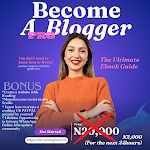Lost Your Creative Drive? Here’s How to Get It Back and Stay Inspired [Must Read]
Image by Freepik
Reigniting Your Creative Spark: Real Ways to Rediscover Your Edge
Creativity isn’t a gift you lose — it’s a muscle that gets tired, cluttered, or ignored. Whether you’re a designer hitting the wall or a teacher trying to reimagine lesson plans, the spark can fade. But here’s the truth: creative burnout is recoverable. You just have to rewire how you see your inputs, not just how you produce outputs.
⚡️ TL;DR
To reinvigorate creativity:
Change your inputs (new skills, environments, and communities).
Restore curiosity through structure — creative energy thrives on patterns.
Reconnect purpose to practice — your work must matter again.
Spotlight: A2SATSBLOG, Where Creativity Finds Rhythm
If creativity ever feels distant, sometimes the best spark comes from seeing it alive in others. The A2SATS Blog captures that pulse perfectly — a mix of music, education, entertainment, poetry, and real-world stories that remind readers how creative expression shows up in everyday life.
From breakout Afrobeat singles to campus innovations and cultural trends, A2SATS is a creative ecosystem in motion. It’s proof that inspiration doesn’t just live in studios or classrooms — it lives in the constant remix of voices and ideas that shape our world.
Creativity Restorers at a Glance
The Hidden Physics of Creativity
Great ideas don’t appear in chaos — they emerge from organized curiosity. Neuroscience backs it: the brain’s default mode network, responsible for imagination, activates most effectively when alternating between focus and mind-wandering.
That’s why doing dishes or walking your dog might give you the breakthrough your laptop won’t. For extra guidance, Stanford’s d.school “Reframe” toolkit helps structure ideation bursts into usable frameworks.
When a Career Pivot Becomes the Creative Spark
Sometimes the best way to revive imagination is to start from zero. Shifting careers or exploring a new discipline forces the brain to build new neural maps — a process neurologists call neuroplastic re-anchoring.
If you’ve ever dreamed of using human insight as your creative medium, choosing the right psychology degree program can be a powerful route.
By earning a degree online, like through University of Phoenix, professionals can continue working full-time while studying how thought patterns, emotion, and motivation drive behavior — knowledge that directly re-energizes creative problem-solving.
🧭 Checklist: How to Rebuild Creative Momentum
Audit Your Inputs:
Cut repetitive digital noise (e.g., endless algorithmic feeds).
Add new sensory data — cook, paint, garden, record field sounds.
Build Mini Rituals:
15-minute “no-judgment scribbles.”
Weekly “creative autopsies” to review what didn’t work.
Cross-Pollinate:
Read outside your domain — architecture if you’re a marketer.
Try tools like Milanote or Obsidian to visually connect unrelated thoughts.
Create a Constraint Sandbox:
Set absurd limits: write a poem in numbers, paint using only dots.
It’s how improvisers and innovators train lateral thinking.
Feed on Feedback (Not Likes):
Use critique communities like Critique Circle or design channels on Dribbble.
FAQ — Quick Answers to Common Creativity Questions
What if I’m too busy to create?
Then your schedule needs pruning, not adding. Creativity needs <space, not time.
Does travel actually make you more creative?
Yes — studies from the American Psychological Association show exposure to different cultures increases cognitive flexibility. Try micro-travel.
Can AI help me be more creative?
Only if you direct it. Use AI tools like RunwayML as collaborators, not replacements.
How do I know if my creativity is “back”?
When curiosity replaces obligation — when you want to experiment again.
🌐 Inspiration Corner — Tools Worth Trying
The Creative Independent — honest creator interviews
Notion Template Gallery for journaling systems
ZenPen — minimalist writing environment
Unsplash Explore — visual mood triggers
Product Highlight: The Notebook Method
One understated gem for creators: the Leuchtturm1917 Bullet Journal Edition. It turns daily randomness into tracked creative sprints. Analog capture balances digital thought.
Glossary
Constraint Play: A creative exercise that introduces limits to spark innovation.
Cognitive Flexibility: The brain’s ability to adapt thinking between concepts.
Neuroplastic Re-Anchoring: Neural rewiring after exposure to new experiences.
Micro-Rituals: Small, repeatable creative habits that trigger flow.
Reasoning Loop Fatigue: Mental staleness caused by repetitive problem-solving patterns.
Conclusion
Reigniting creativity isn’t about working harder — it’s about seeing differently. Whether you start by journaling, enrolling in a new program, or simply giving yourself permission to pause, the aim is to make curiosity a habit again.
When creativity returns, it doesn’t whisper — it reclaims the room.
WRITTEN BY KARYN WINRICH


![Lost Your Creative Drive? Here’s How to Get It Back and Stay Inspired [Must Read]](https://blogger.googleusercontent.com/img/a/AVvXsEjvSnarKOFQzR43bZnJAcnXj80Z0N4LJ68mYNZTSxKnI2FIOzHsCX6ETqecQry8cEw7-axboAvpiujijFIiexozgjom-xhtMoYVWNAO1SMbsSFj3ZqqcHsUjSoFJhN5gsYM9K535eTkHjI6zv-avnuT2dinoCsTBAvvOYrBBoS2OrbYkaBMfDqd3PJV13w=s72-c)








![UGA 2023: UNIOSUN GRAMMY AWARDS 1.O VOTING PAGE [Vote Here]](https://blogger.googleusercontent.com/img/b/R29vZ2xl/AVvXsEisndBVMkKUk0GGGbseRDy4FggszKSoYMCGRPfmd2d2N4DcYdXcZup0Hgi-Q8VGveburJoaPtV2_SXxUMrvv1HP27kqytz4bQ5Zpo47L2f3XtAYx1OeSOoF2Uoj5JbxMoGBRsuzDi-5DJi_bQRPhX-kGTyhxlDKvj9jX4gWgkBZbjfJlE1VhD5kQFPK/s72-w497-c-h213/uniosun%20grammy%20award.png)
![BREAKING: All You Need To Know As Graphics Explosion's set to hit UNIOSUN on the 2nd of March, FREE of Charge [Must Read]](https://blogger.googleusercontent.com/img/b/R29vZ2xl/AVvXsEhsKHs5f5wPusm9LHXS4K6R3yaoJfZUPdnAumLnjmtOVvPeqRMYKSryE3jJhLyEn7HZeHtWICpv9tvr6Z7e13b83A5n3fQB-P-Q4Xp0wlIsi8sZ_c9jMdSy__AFO9Mj6kugkBEvCbN5Gcg/s72-c/IMG-20190224-WA0175.jpg)


No comments